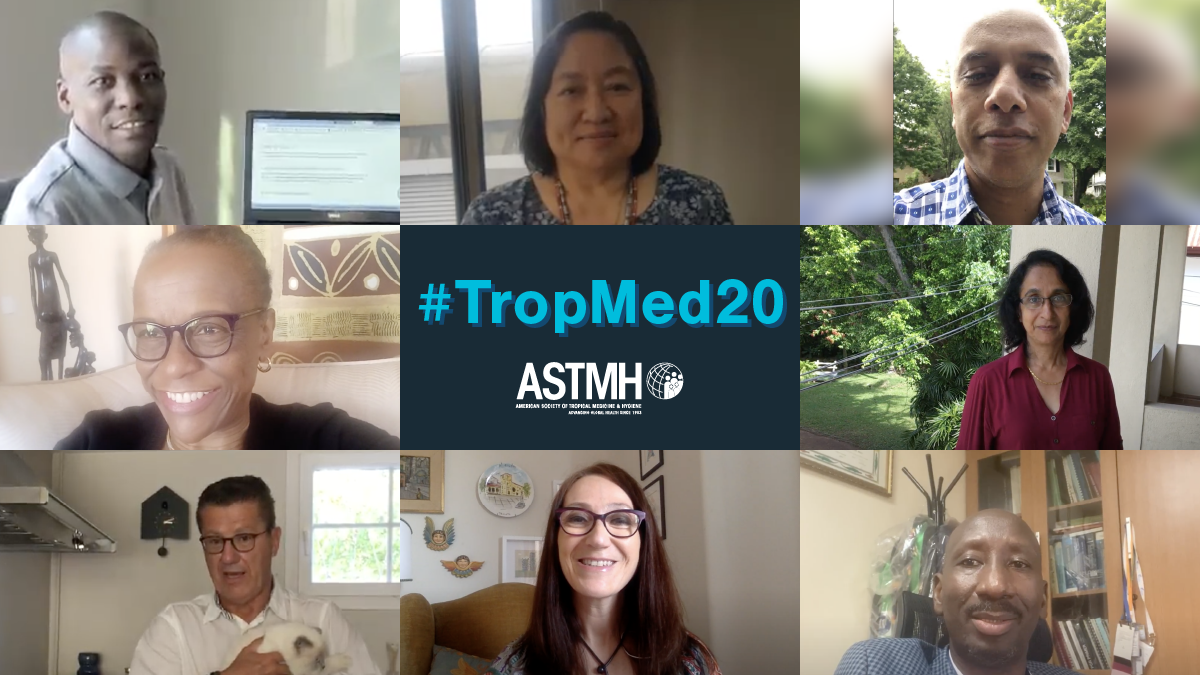ASTMH Annual Meeting 2025
blogCOVID-19, Climate Change, and Poxes Still Upon Us: #TropMed20 Pick 6 with Dan Bausch
By: Matthew Davis, Burness

#TropMed20 is virtually upon us—virtually in the full meaning of the word, since this year’s ASTMH Annual meeting is occurring entirely online starting Sunday, November 15 with the opening plenary session set for 5:00 p.m. US Eastern Time. We all know the reason: The worst pandemic in 100 years is preventing a group that includes the world’s leading experts in fighting outbreaks of dangerous diseases from meeting in person. Nevertheless, the scientific exchange that the Annual Meeting provides is more important than ever. We still have an exciting line-up that will include new insights into the ongoing struggle against SARS-COV-2 alongside a host of other compelling presentations spanning a range of global health challenges.
Scientific Program Chair (and ASTMH 2022 President-Elect) Daniel G. Bausch, MD, MPH&TM, FASTMH, takes us through a few of the highlights that should count as the online equivalent of “must-see TV.”
COVID-19 at the Close of 2020: Anthony Fauci, MD, head of the National Institute of Allergy and Infectious Diseases (NIAID) and John Nkengasong, PhD, Director of the Africa Centres for Disease Control and Prevention, will be part of a high-profile panel on Monday, November 16 discussing the resurgent pandemic. Richard Hatchett, MD, Chief Executive Officer of the Coalition for Epidemic Preparedness Innovations (CEPI), will provide an update on vaccines and the challenges of distribution and access. Heidi Larson, MD, PhD, Director of the Vaccine Confidence Project at the London School of Hygiene & Tropical Medicine, will explore the impact of vaccine mistrust on COVID-19 immunization campaigns. Moderating will be Helen Branswell, STAT’s senior writer for infectious diseases and global health.
From the Frying Pan of COVID-19 to the Fires of Climate Change: In addition to COVID-19, climate change looms as one of the most important public health threats of our time—and TropMed2020 will include a strong focus on climate-health connections. The meeting begins with a keynote on Sunday, November 15 during the opening plenary session from Christiana Figueres, former Executive Secretary of the United Nations Framework Convention on Climate Change (UNFCCC), who was instrumental in crafting the historic Paris Agreement. Other presentations include new evidence to be discussed Monday that higher temperatures could make humans more appetizing for disease-carrying ticks and a special climate symposium Monday exploring the 2020 Lancet Countdown on Health and Climate Change. On Tuesday, November 17 reports from a study from West Africa will probe how hotter weather could bring new risks to fetal heath.
Race and Colonialism in Tropical Medicine: Two symposia will explore issues of race, equity and social justice that still pose challenges for global health research. On Thursday, November 19 Linnie Golightly, MD, Associate Dean of Diversity at Weill Cornell Medical College, will explore the complex exploitive colonial history of the field of “tropical medicine,” followed by a panel discussion chaired by Jonathan Stiles, PhD, Professor at Morehouse School of Medicine and an ASTMH Board member, and Julie Jacobson, MD, DTM&H, incoming ASTMH President, and including Amadou Sall, PhD, Director of the Institute Pasteur de Dakar, Senegal, Mishal Kahn, PhD, with the Decolonizing Global Health initiative at the London School of Hygiene & Tropical Medicine, and Thomas LaVeist, PhD, Dean of the Tulane School of Public Health and Tropical Medicine. A symposium Monday will focus on developing a better balance of power between researchers in high- and low-income countries.
Smallpox Eradication Turns 40, But Other Pox Threats Remain: At a time when the threat of infectious disease is palpable to everyone on the planet, a symposium on Monday will mark the 40th anniversary of smallpox eradication with reflections from veterans of this historic battle—and with new assessments of pox viruses that continue to pose a threat, including monkeypox, which has recently caused outbreaks in Nigeria.
Malaria at a Crossroads: There are new insights into how we can maintain progress in a fight against malaria that has shown signs of hitting a plateau after years of major progress.
On Wednesday, November 18 we’ll get an update from an ongoing trial of a new malaria vaccine developed by a team that includes scientists also involved in a leading COVID-19 candidate. Researchers working in Uganda will present new evidence on Thursday of stealth asymptomatic malaria “super spreaders” who could pose a barrier to eliminating the disease and a threat for sparking a resurgence. Also on Thursday, look for new insights into the effort to detect the Plasmodium vivax malaria parasite when it disappears, going dormant in the human liver.
Obscure Deadly Hemorrhagic Fever Disease Re-Emerges in Bolivia: On Thursday, a scientist from the US CDC’s Division of High-Consequence Pathogens and Pathology will present new evidence of how a dangerous rodent-borne disease called Chapare hemorrhagic fever can also spread from human to human. Chapare virus was first discovered in Bolivia in 2003 and led to one known fatality. But it was not seen again until an outbreak last year.
Related Posts
By: Matthew Davis, Burness